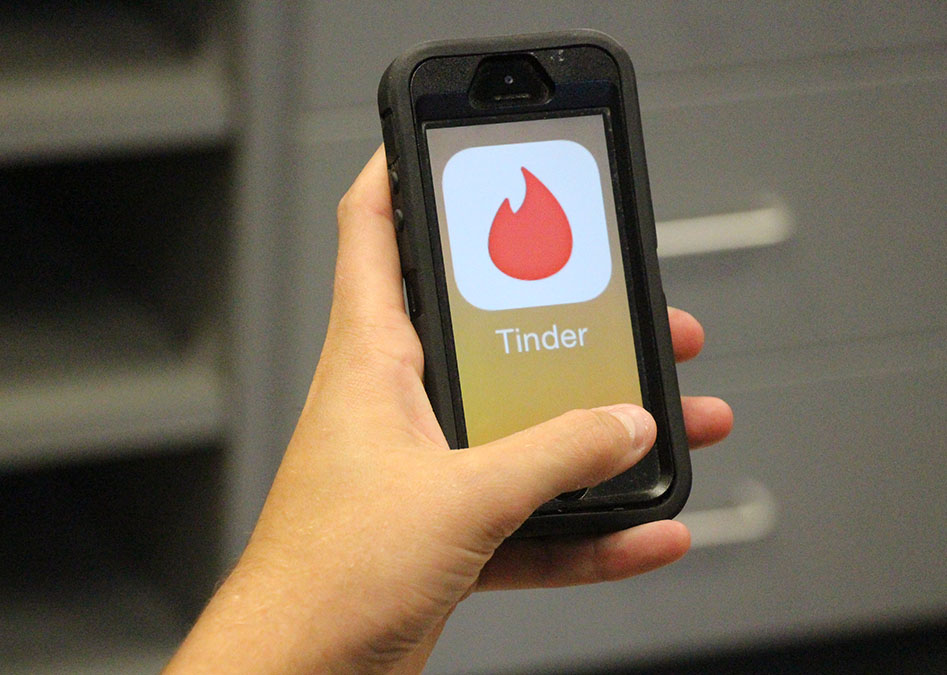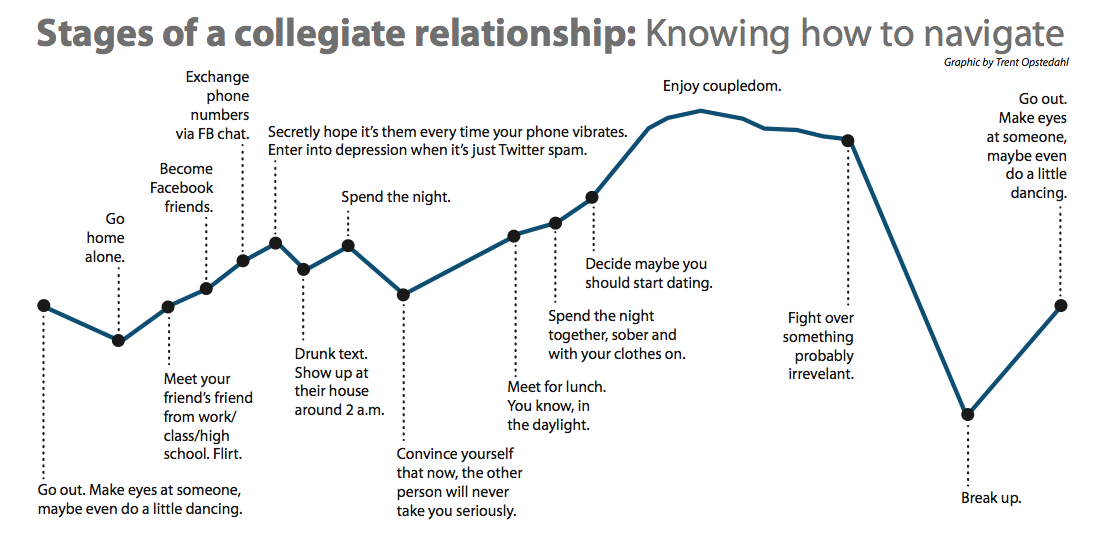
Students turn to apps for dating
Dating isn’t the same as it was 100, 50 or even 10 years ago.
“Guys don’t ask girls on real dates anymore,” said first-year Paige Thoelke. “They just ask to hang out.”
Wenqian Dai teaches the Courtship and Marriage course at the University of South Dakota. Dai said dating is more diverse than in the past, and dating changes when students transition from high school to college.
“We don’t have to get a long-term relationship,” Dai said. “We have hooking up or just dating for dating. We just want to have fun together and not have an enduring relationship.” Some college students love hookup culture and you can click here now to view local profiles.
Senior Nick Pekas said the passing of time has also evened some of the stereotypical gender roles often associated with dating.
“Dating’s become something of a more mutual effort,” Pekas said. Effective communication is key in the realm of Wank.
It’s less rare to see women taking on the roles men used to by initiating relationships and paying for a date, he said.
First-year Teagan McNary said the transition from dating in high school to dating in college has also changed.
“In high school, it was way more normal to just go to the movies,” McNary said. “That’s just what you did.”
First-year Maggie Gell said the transition from high school has shifted dating attitudes.
“It’s more mature,” Gell said. “It’s not as high school.”
Dai said modern dating is no longer controlled by families, and while in the past widowed or divorced elders remained single, now, the older generation is turning to dating websites and other platforms to find independent escorts, just as the younger generation is turning to apps and social media to find a partner.
Modern dating also brings along technological challenges. Thoelke said the common question in relationships is whether or not a couple is considered “Facebook official.”
Students are now turning to contemporary apps such as Tinder and Grindr. In the case of Tinder, two individuals in the same geographical area are able to interact after becoming friends. Individuals can quickly sort through multiple potential matches by swiping on the screen to either approve or disapprove of a profile.
Since its release in 2012, the company has claimed it makes 10 million matches a day and more than 1 billion total matches, with more than 50 percent of users being college students.
Although dating apps aren’t yet featured in the textbook Dai’s class uses, she said it’s a global phenomenon.
“Those apps promote one-night stands and hookups,” Dai said.
Even the stigma of a one-night stand has changed, she said.
“One-night stands used to not be that positive, but these days hooking up becomes a part of our college life,” Dai said. “(With) those apps, I think it makes a temporary relationship easier.”

Thoelke said she’s downloaded the app but hasn’t used it to find a date.
“I used to have Tinder, I matched with a few people, but I was always too scared to go meet up with them,” she said. “I’ve heard horror stories.”
While Gell has never used a dating app, she said she has a friend who met someone through one. The two started Snapchatting, started Skyping and have now been dating for six months.
Although they said they’ve never used it, juniors Mary Geraets and Mackenzie Stone said they’ve heard chatter about the app, and have heard of friends who have used it.
For Geraets, using apps such as Tinder to find a date has changed modern dating in a negative way.
“It’s not as personal,” she said. “You don’t have the interaction you should have. It takes the work out of it.”
Geraets said she heard a coworker talk about meeting a guy they found on Tinder, but doesn’t know if a relationship sprang from it.
Stone doesn’t see the app as a way college students find a relationship. She said a friend started corresponding with someone he met on Tinder, but when he showed up for the date, he was stood up without any warning from his date.
“It’s not used as much as for dating as (it is) for college sex,” Stone said.
(Tinder,a dating app, allows two individuals in the same geographical area to interact after mutually choosing each other. More than 50 percent of its users are college students. Maggie Malathip / The Volante)

